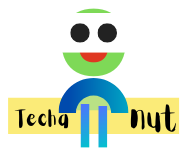In an increasingly hot and progressive digital space that we live in today, every business is looking for the best as well a cost-effective solution to stay ahead of competitors. A popular method has been the adoption by single source technologies. Designed as a Consolidated Background for your business processes, these technologies offer help to streamline the overall operations of companies and bring about an enhancement in productivity.
What Are Single Source Technologies?
Systems, platforms that combine/merge processes/redundant activities into a consistent ‘all in one’ solution. Driven Post offer businesses the ability to replace a quilt of different software tools and vendors for each element of their operations (supply chain management; customer relationship management or CRM, data analytics etc.), with one source comprehensive technology.
Integration of the two ensures a ubiquitous way and destroys data/process silos that are typical in customers where different departments use multiple systems which do not talk well with each other.
Benefits of Single Source Technologies
Few of the benefits that a company can have are:
Improved Efficiency & Productivity: Organizations could get rid off all these multiple systems which eventually will improve efficiency and productivity. All an employee needs to do is login through a single unified interface and they can access all the tools that they are given. It helps in reducing time spent switching between different platforms for their respective purpose.
Cost Savings: You are likely paying for multiple licenses, support contracts and possibly overlap functionality maintain more systems. Single source technologies: Single-source solutions can be less expensive often sunlight in the total cost of ownership.
Increased Data Accuracy and Consistency: Having the conflation of data in one source you can cut down on having multiple versions that introduces human discrepancies. Improving data quality, which is key to making better-informed decisions and running your business efficiently.
Easier IT Management: The basic principle of one platform versus many systems. This in turn takes the burden off perimeter IT departments, freeing them to do more strategic work and less running on a hamster wheel.
Scalability and Flexibility: Again, many single source systems are scalable in nature to accommodate for increasing business without constant upgrades or additional system replacements. Moreover, these platforms tend to build in modules that can be easily added or taken out as functionality is required.
Key Industries Benefiting from Single Source Technologies
The benefits of single source technology apply to many industries, but some are more prominent at employing and using these platforms:
Manufacturing: Single source technologies allow manufacturers to unite their entire production process, from supply chain management and all the way through to production and distribution. It is an essential integration to optimize Production Schedule, manage Inventory and Deliver products on Time.
Retail: Which enables retailers to control their sales, inventory product database and marketing strategies on one platform only. This integrates all of your systems, which allows for better operational efficiency and a seamless customer journey — both in terms of digital presence and physical touchpoints.
There are a lot of areas where these single source technology solutions can be used, one major area is the healthcare industry that have patient records maintenance and efficiency in billing system apart from appointment scheduling.
Finance: Financial institutions utilize single source technologies in managing customer accounts to adhere by regulatory compliance for risk management hence operating through secure and efficiency.
Challenges and Considerations
Given the obvious benefits of single source technologies, let us move on to some challenges as well:
The initial Implementation cost: Changing from a one to many source platforms might cause integration tweaks and involve significant hardware investments upfront, even more if multiple legacy systems are being replaced.
Vendor Lock-in: Having a single vendor for all of your technology needs may create dependency and make it harder to change or integrate with other systems down the road.
Can be less customizable: While single source platforms do offer a breadth of features, there is no way around the fact that not every business will have their needs met. Less customizable: Generalized systems are less likely to offer out-of-the-box solutions that cater perfectly to your specific needs as best-in-breed options might.
The Future of Single Source Technologies
Integration continues to be a key enabler especially as business dynamics evolve across industries. Cloud computing, AI and ML developments accelerate these platforms to a more robust and adjustable level that can cater thousands of the bespoke requirements for businesses from all verticals.
Further, as data continues to gain more importance relating to business strategy then having a single platform that can handle and analyze all of this data will present enormous economic advantages.
Also Read: Atomization Technology : Apps, Challenges & Future Prospects
Conclusion
A key element in processes that can streamline functions and trim costs, single source technologies represent a powerful tool for businesses. There are definitely some hurdles to overcome but the upside is so attractive that it has caught on like wild-fire for companies in several different types of industries. These technologies are no doubt going to be key pieces of the future puzzle, though with ongoing evolution still very much a part of their story you can expect high levels innovation from these areas in shaping how business operations take place several years down the line.

